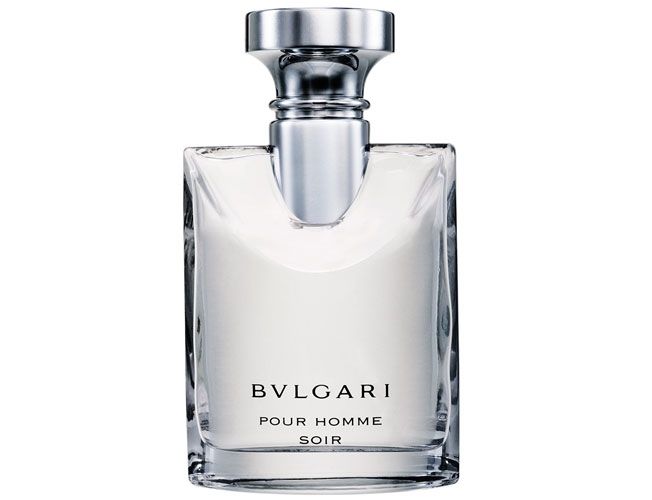Pour Homme is a term used in the cologne industry to indicate that the fragrance is designed for men. Cologne enthusiasts often come across the term “Pour Homme” and may wonder about its meaning.
Pour Homme is a French phrase that translates to “for men” in English. In the context of cologne, Pour Homme signifies that the fragrance has been specifically formulated and intended for male use. This designation typically implies a scent profile that aligns with traditional masculine preferences, featuring elements such as woody, spicy, or fresh notes.
Pour Homme is widely used by fragrance brands to differentiate their offerings and cater to the diverse preferences of male consumers. Understanding the meaning of Pour Homme helps individuals make informed choices when selecting colognes that suit their personal style and gender identity.

Credit: allthedifferences.com
What Is The Origin Of “Pour Homme” In Cologne?
The term “Pour Homme” in cologne originates from the fragrance industry’s historical background and the influence of French language and culture. During the late 19th and early 20th centuries, French perfumers embraced the notion of creating scents specifically tailored for men.
The French phrase “Pour Homme,” meaning “for men,” became popularized as a descriptor for fragrances designed for masculine use. This linguistic and cultural influence can be attributed to the prominence and sophistication associated with French perfumery and fashion. As a result, “Pour Homme” has become a widely recognized label in the fragrance industry, indicating that a particular scent is intended for male consumers.
Today, many cologne brands continue to utilize this term to distinguish their products and cater to the preferences of male customers who seek distinctive and masculine fragrances.
Pour Homme: The Significance And Definition
Pour Homme translates to “for men” in French and holds great significance in the world of cologne. It signifies the gender-specific nature of fragrances, with Pour Homme being designed specifically for men. This term helps consumers easily identify and select scents that align with their gender preferences.
When it comes to fragrances, the interpretation of “Pour Homme” extends beyond just the labeling. It reflects the unique attributes and characteristics associated with masculinity, capturing the essence of manliness and strength. Understanding the gender significance in fragrances allows individuals to make informed choices and find scents that resonate with their personal style.
So, the next time you’re looking for a men’s cologne, pay attention to the label and embrace the essence of “Pour Homme” in your selection.
How To Choose The Right Pour Homme Cologne
Pour Homme in cologne is a term that refers to fragrances designed specifically for men. When choosing the right Pour Homme scent, there are several factors to consider. One important factor is matching the fragrance to your personal style and personality.
This ensures that the scent truly reflects who you are. Additionally, consider the occasion for which you will be wearing the fragrance. Different scents may be more appropriate for casual everyday use versus a formal event. Moreover, pay attention to the fragrance notes and how they interact with your body chemistry.
Some scents may smell different on different individuals. By considering these factors, you can select a Pour Homme cologne that makes a statement and enhances your overall style and presence.
“Pour Homme” Vs. “Pour Femme”
“Pour Homme” and “Pour Femme” are terms used in the fragrance industry to distinguish between masculine and feminine scents. While “Pour Homme” translates to “for men,” and “Pour Femme” means “for women,” these labels go beyond gender. When comparing the characteristics and notes of masculine and feminine scents, it’s important to break stereotypes and consider the concept of unisex fragrances.
Fragrance preferences are personal and can vary greatly regardless of gender. Embracing the idea of unisex fragrances allows individuals to explore a wider range of scents and express their unique personalities. Instead of limiting themselves to scents traditionally associated with their gender, people can choose fragrances that resonate with them personally, regardless of societal expectations.
Breaking away from the notion of strictly gendered scents can lead to a more inclusive and diverse fragrance industry.
“Pour Homme” Vs. “Cologne” Vs. “Eau De Toilette”
The distinction between “pour homme,” “cologne,” and “eau de toilette” lies in their concentrations and distinctions. Concentration directly impacts a fragrance’s longevity and intensity. While “pour homme” refers specifically to cologne made for men, “cologne” is a generic term for light, citrus-based fragrances.
“Eau de toilette” typically has a lower concentration of essential oils than cologne. The higher the concentration, the longer the scent will last and the stronger it will be. Understanding these differences can help individuals make informed choices when selecting their preferred fragrance.
Trends And Transformations In Masculine Fragrances
Pour Homme is a term commonly used in the world of cologne and fragrances. It translates to “for men” in French, indicating that the scent is designed specifically for male use. Over the years, there have been significant transformations in masculine fragrances.
The preferences for scents have evolved, reflecting changes in society and cultural norms. In the past, traditional masculine fragrances tended to be strong and musky. However, modern concepts and themes have emerged in “Pour Homme” fragrances. The focus is now on creating diverse and complex scents that cater to the ever-changing preferences of men.
From fresh and citrusy notes to woody and aromatic undertones, the options for men have expanded, offering a wide range of choices to suit individual tastes and personalities. These trends highlight the dynamic nature of masculine fragrances and their ability to adapt to the evolving needs of consumers.
Innovation And Experimentation: New Directions In “Pour Homme”
In the realm of cologne, the term “pour homme” holds the utmost significance, representing its intended target audience: men. As the fragrance industry evolves, innovation and experimentation have taken center stage, paving the way for new directions in the realm of “pour homme”.
Breaking away from traditional boundaries, fragrance creators today employ unique ingredients and combinations that captivate the senses. Influences from different cultures and perfume houses further shape this evolution, resulting in an array of scents that speak to diverse preferences. From spicy oriental notes inspired by the Middle East to fresh and crisp accords reminiscent of the Mediterranean, the world of “pour homme” continues to expand, offering men an array of choices to express their individuality.
With each new blend, cologne aficionados embark on a sensory journey that celebrates the art of perfumery and its ability to transcend gender boundaries.
Classic “Pour Homme” Scents That Defined The Genre
Pour Homme, a phrase commonly found in the world of cologne, translates to “for men. ” These classic scents have long been associated with masculinity and have become an integral part of the fragrance industry. Iconic fragrances like Calvin Klein’s “Eternity for Men” and Dior’s “Fahrenheit” have captivated generations with their unique blends of notes.
Despite the ever-evolving trends in the fragrance world, these “Pour Homme” scents have stood the test of time and continue to appeal to men of all ages. Their timeless appeal lies in the careful balance of ingredients, which create a harmonious scent that exudes confidence and sophistication.
Whether it’s the woody notes of sandalwood and cedar or the fresh burst of citrus, these fragrances have become iconic for their ability to create a lasting impression.
Contemporary “Pour Homme” Perfumes For The Modern Man
Pour Homme, a term in cologne, means “for men” in French. Today’s modern man seeks contemporary perfumes that align with his style and preferences. These popular choices among consumers offer unique and memorable scents for various occasions. With a wide array of options available, men can find fragrances that perfectly match their personality and complement their individuality.
Whether it’s a crisp and clean scent for the office, a fresh and invigorating fragrance for casual occasions, or a bold and sophisticated aroma for special events, pour homme perfumes cater to diverse preferences. The modern man can express his essence through these captivating scents, leaving a lasting impression wherever he goes.
From citrusy notes to woody undertones, these colognes offer a range of options for every man to discover his signature scent. Embrace the allure of pour homme perfumes and enhance your overall presence with a scent that truly represents you.
Frequently Asked Questions On What Does Pour Homme Mean In Cologne
What Does Pour Homme Smell Like?
Pour Homme has a distinct scent that is masculine, rich, and sophisticated, with hints of citrus, spice, and wood.
What Is Better Pour Homme Or Eau De Toilette?
Pour Homme is a fragrance designed for men, while Eau de Toilette refers to its concentration.
Does Pour Homme Smell Good?
Yes, Pour Homme has a pleasant scent that is liked by many.
Is Pour Homme A Good Perfume?
Pour Homme is a fantastic perfume that is highly regarded for its exceptional quality.
Conclusion
Understanding the meaning and significance of “pour homme” in cologne can enhance your fragrance-buying experience. The term, originating from the French language, translates to “for men” and signifies that the fragrance is specifically designed and tailored for masculine preferences. By knowing this, you can make more informed choices when selecting a cologne that aligns with your individual style and personality.
Remember that “pour homme” doesn’t necessarily limit colognes to men only, and anyone can wear scents labeled as such based on their own personal preferences. Furthermore, knowing the meaning of “pour homme” can help you navigate through the vast variety of fragrances available in the market, making your search for the perfect scent more efficient and enjoyable.
So, next time you’re exploring cologne options, pay attention to the “pour homme” label and let it guide you toward scents that truly suit you.








